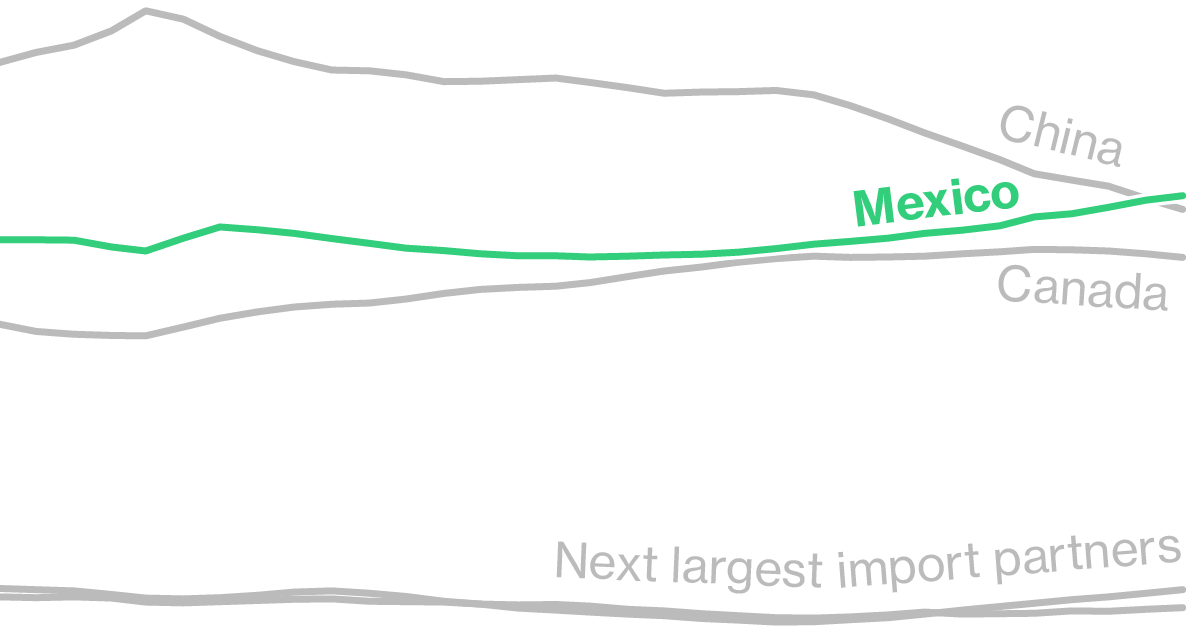The new Cold War is a business opportunity, and Mexico looks better placed than almost any other country to seize it.
US-China tensions are rewiring global trade, as the US seeks to reduce supply-chain reliance on geopolitical rivals and also source imports from closer to home. Mexico appeals on both counts—which is one reason it’s just overtaken China as the biggest supplier of goods to the giant customer next door.
On top of resurgent exports, Mexico boasts the world’s strongest currency this year and one of the best-performing stock markets. Foreign direct investment is already up more than 40% in 2023, even before Tesla Inc. starts building a proposed $5 billion factory. Not since the signing of the North American Free Trade Agreement in the 1990s has the country held the kind of allure for investors that it has right now.



I wonder, assuming buying habits are essentially unchanged, does this mean emissions are going to go down (shipping is nearby, no more cross-ocean planes or ships), up (more trucking, meaning smaller loads), or will it roughly cancel out?
I work closely with global transportation, and I can tell you with confidence this means GHGs are going up. Theres something called scope 3 emission factors and sea freight is lower than truck exponentially depending on the distance and weight.
I was afraid of that. I’m guessing that any US-Mexico railways aren’t very useful, assuming they actually exist and are maintained.
Almost all freight from Mexico to the US and vice versa gets offloaded at a warehouse on the border and then switched to a different driver/mode of transportation as having a driver eligible to do the whole trip is hard to come by and expensive.
That being said, the rail ramp in Laredo, TX (the crossing point of Nuevo Leon, MX and the US) is active and widely used. Issue is that rail is slow so if your shipment has any urgency, you just use a truck. I use both and while US rail companies suck to work with, they can be very effective cost wise and help keep our total carbon emissions down. But nothing beats a truck in terms of speed and availability in the US…